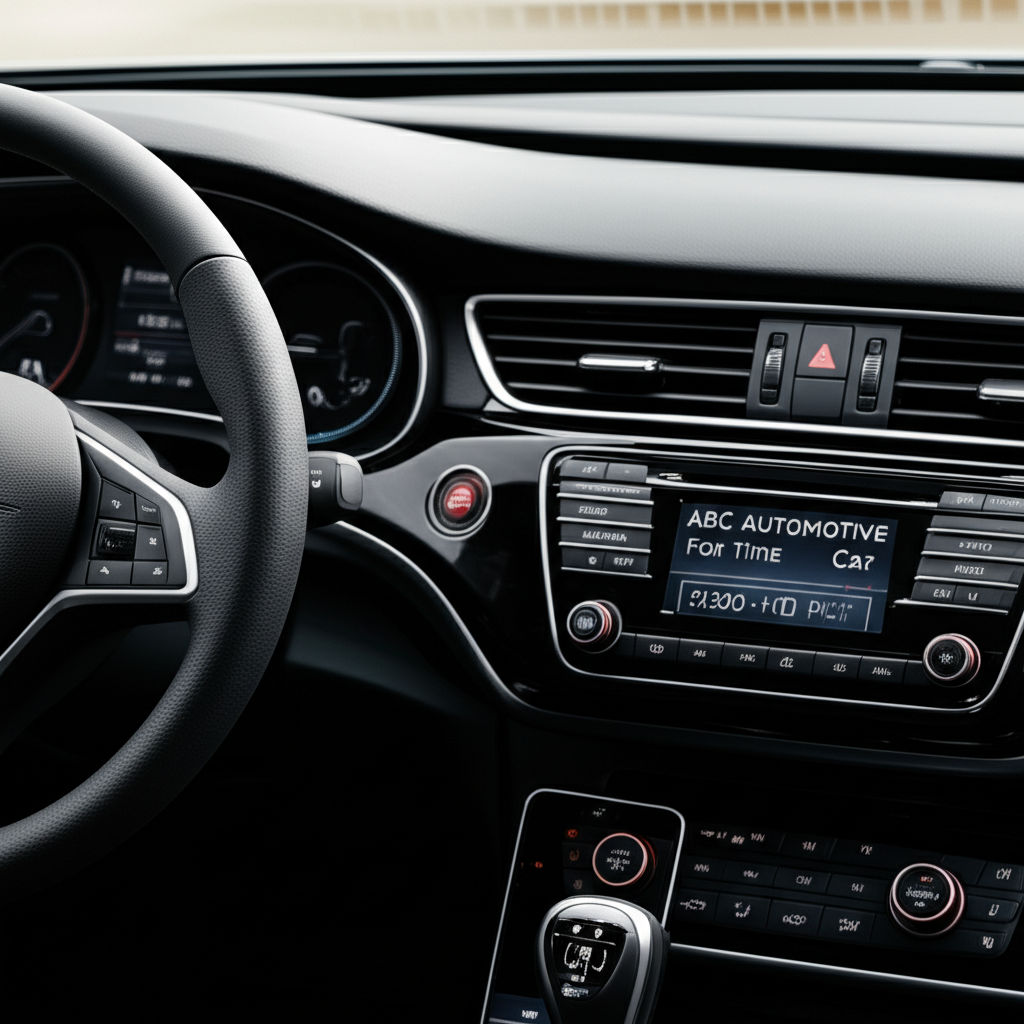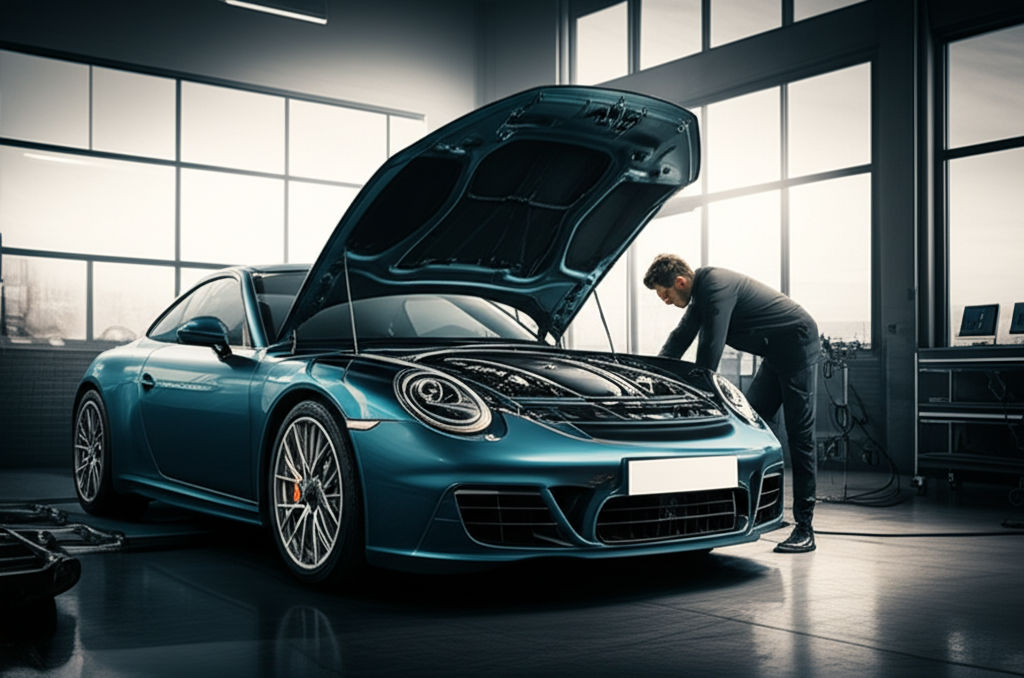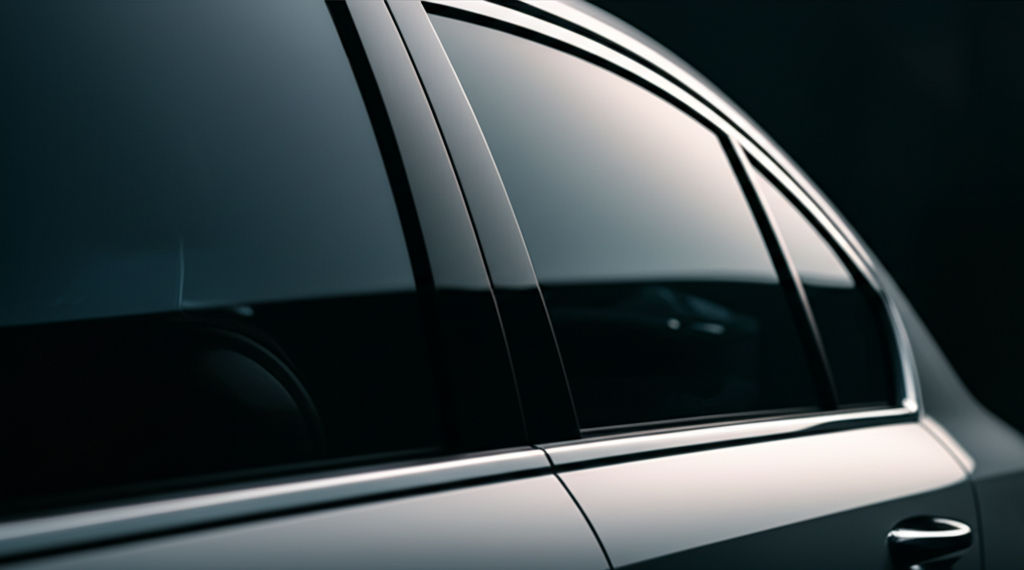ABC Automotive Tips For First Time Car Owners
Ellie Moore

Photo: New car owner? Master essential vehicle care, dashboard warnings, and smart driving habits with our guide. Drive safely & confidently!
As a first-time car owner, the excitement of hitting the open road with your own set of wheels is unparalleled. This newfound freedom, however, comes with a significant responsibility: understanding and maintaining your vehicle. At ABC Automotive, we believe that being an informed car owner is the first step toward a safe, enjoyable, and financially sound driving experience. This comprehensive guide provides essential automotive tips for first-time car owners, covering everything from basic car care to smart driving habits and preparing for the unexpected.
Getting to Know Your Car: Beyond the Keys
Before you even think about long drives, take the time to truly familiarize yourself with your vehicle. It’s more than just pressing the ignition and steering.
The Owner's Manual: Your First Best Friend
Think of your car's owner's manual as its autobiography—it contains everything you need to know about its features, maintenance schedules, and troubleshooting tips. Many new car owners overlook this invaluable resource, but it's crucial for understanding your vehicle's essential functions, recommended service intervals, and even the meaning of those mysterious dashboard lights. Knowing these details empowers you to address minor issues and communicate effectively with mechanics when needed.
Dashboard Warning Lights: What Do They Mean?
Your car communicates with you through its dashboard warning lights. These aren't just decorative symbols; they're vital indicators of your vehicle's health. Understanding their meanings can prevent minor issues from escalating into major, costly problems.
- Red Lights: These are urgent and signal a serious problem that requires immediate attention. If a red light illuminates, pull over safely and turn off the engine as soon as possible. Examples include the oil pressure warning light (indicating low engine oil pressure, which can cause catastrophic engine damage) or the brake system warning light.
- Yellow/Orange Lights: These are advisory and indicate a less urgent issue that still needs to be addressed soon. You can usually continue driving, but schedule an appointment with a mechanic. Common yellow lights include the "check engine" light, tire pressure monitoring system (TPMS) light, or ABS warning light.
- Green/Blue Lights: These are informational, simply indicating that a system is active or functioning, such as your headlights or high beams.
Always consult your owner's manual for specific meanings, as designs can vary between car models.
Basic Controls and Features You Must Know
Beyond the steering wheel and pedals, familiarize yourself with essential controls like:
- Headlights (high and low beams)
- Wipers and washer fluid
- Hazard lights
- Emergency brake
- Fuel cap release
- Trunk/hood release
Knowing these intuitively will ensure you can react quickly and safely in any driving situation.
Keeping Your Car Healthy: Beginner-Friendly Maintenance
Regular maintenance is not just about extending your car's lifespan; it's about ensuring your safety and optimizing performance. Proactive car care can also save you from expensive repairs down the line.
The Lifeline of Your Engine: Oil Changes Explained
Engine oil is the lifeblood of your vehicle, lubricating moving parts and preventing friction. Regular oil changes are crucial for engine health and optimal performance.
- Checking Oil Levels: Check your engine oil at least once a month, or before long journeys. Park your car on a level surface with the engine cool. Locate the dipstick (often yellow or white), pull it out, wipe it clean, reinsert it fully, and then pull it out again to check the level. The oil should be between the 'min' and 'max' markings.
- When to Change: Typically, oil should be replaced every 5,000–10,000 km (or 3,000-5,000 miles), or as recommended in your car manual. Always replace the oil filter during oil changes to prevent contamination of fresh oil.
Tire Care: Pressure, Tread, and Rotation
Your tires are your car's only contact with the road, making their condition paramount for safety, fuel efficiency, and handling.
- Tire Pressure: Regularly check your tire pressure using a reliable gauge, ideally once a month and before long trips. Correct tire pressure improves fuel economy, extends tire lifespan, and enhances overall comfort while driving. The recommended pressure can be found in your owner's manual or on a sticker inside your driver's side door jamb.
- Tread Depth: Ensure your tire tread depth is adequate. The legal minimum is typically 1.6mm across the central three-quarters of the tire. The "20p test" (or penny test in the US) is a simple way to check: insert a coin into the main grooves; if you can see the outer band of the coin, your tread might be too low.
- Tire Rotation: Rotating your tires every 6,000 to 8,000 miles ensures even wear, extending their lifespan and preventing premature wear.
Battery Basics: Powering Your Journey
Your car's battery is essential for starting the engine and powering electrical systems.
- Regular Inspection: Visually inspect your battery terminals for any signs of corrosion (dry white battery acid). Clean them if necessary using a wire brush and a mixture of baking soda and water.
- Lifespan: Car batteries typically last around three to five years. Consider replacing yours every three years to avoid unexpected breakdowns, as a flat or faulty battery is a common cause of vehicle issues.
Brakes: Your Safety Net
The braking system is arguably your car's most critical safety feature. Regular inspection is non-negotiable.
- Listen and Feel: Pay attention to any screeching, grinding, or unusual noises when braking, as these indicate worn brake pads that need replacement.
- Brake Fluid: Check your brake fluid level regularly. Low fluid can compromise braking performance and may indicate a leak. The fluid should be between the 'min' and 'max' lines on the reservoir.
Fluid Checks: Beyond the Oil
Besides engine oil, your car relies on several other fluids for optimal operation. Regularly checking and topping these off is vital.
- Coolant/Antifreeze: Essential for keeping your engine at the correct operating temperature and preventing overheating. Check the coolant reservoir; the level should be between the minimum and maximum markers when the engine is cool. Never open a hot cooling system.
- Windshield Washer Fluid: While not critical for the engine, maintaining a full washer fluid reservoir is crucial for clear visibility, especially in adverse weather.
- Power Steering Fluid: Ensures smooth steering. Check its level in the designated reservoir.
- Transmission Fluid: Helps your car shift gears smoothly. Check its level using the dipstick, typically with the engine running and warmed up.
Driving Smart and Safe
Beyond mechanical upkeep, how you drive significantly impacts your car's longevity and your safety.
Defensive Driving 101 for New Drivers
Defensive driving involves anticipating potential hazards and reacting safely to prevent accidents.
- Maintain Safe Following Distance: Always leave enough space between your car and the vehicle in front of you, especially in poor weather.
- Stay Alert: Avoid distractions like mobile phones. Be aware of your surroundings and other drivers.
- Obey Traffic Rules: This includes speed limits, traffic signals, and road signs.
Fuel Efficiency: Making Your Tank Go Further
Saving on fuel costs is always a plus. Small changes in driving habits can make a big difference.
- Smooth Acceleration and Braking: Avoid aggressive driving, which wastes fuel and puts unnecessary strain on your engine and brakes.
- Proper Tire Pressure: As mentioned, correctly inflated tires significantly improve fuel economy.
- Remove Unnecessary Weight: Carrying excessive weight reduces fuel efficiency.
- Avoid Excessive Idling: If you're going to be stopped for more than a minute, it's often more fuel-efficient to turn off your engine.
Navigating Parking and Tight Spaces
For new drivers, parking can be daunting. Practice makes perfect, but here are some tips:
- Practice in Empty Lots: Spend time in empty parking lots practicing parallel parking, backing up, and navigating tight turns.
- Use Your Mirrors: Properly adjust and use all your mirrors.
- Go Slow: Take your time; there's no rush when parking.
Preparing for the Unexpected
Even with diligent maintenance and safe driving, unforeseen circumstances can arise. Being prepared is key.
The Essential Emergency Kit for Your Car
Every first-time car owner should assemble an emergency kit for their vehicle.
- Jumper Cables: Or a portable jump-starter.
- Spare Tire, Jack, and Lug Wrench: Ensure your spare tire
Finance & Investment
View All
June 7, 2025
CNN Finance Breaking Down Global Money TrendsMaster expert SEO content for online visibility & growth. Build trust, authority, and value by leveraging E-E-A-T, user intent, and in-depth research.
Ellie Moore

June 30, 2025
Can You Trade In a Financed Car EasilyGo beyond keywords! Craft expert SEO content focusing on E-E-A-T, user intent & value to rank higher, build trust, and drive organic traffic. Your blueprint for...
Ellie Moore

November 22, 2025
Lexus Financing Deals You Must SeeElevate your content strategy with expert SEO. Understand E-E-A-T, quality, and unique insights to rank higher, build trust, and truly serve your audience.
Ellie Moore

November 14, 2025
Finance Careers in ChicagoUnlock business growth with expert SEO content. Learn how E-E-A-T, user-centricity, and value drive organic traffic, build authority, and satisfy users.
Ellie Moore

April 26, 2025
Finance and Financial Services InfoUnlock top rankings & reader engagement with expert SEO content. Discover how to create valuable, authoritative, and user-friendly content for today's web.
Ellie Moore

January 20, 2025
Latest Market News from MSNBC FinanceUnlock your online potential with expert SEO content. Drive rankings, organic traffic, and brand trust by creating high-quality, E-E-A-T-focused material.
Ellie Moore
Insurance
View AllTired of overpaying for auto insurance? This guide helps you find optimal coverage, compare quotes, and secure savings for peace of mind on the road.
Ellie Moore
Protect your finances with Liberty Mutual Car Insurance. Our comprehensive guide helps policyholders & risk managers optimize coverage & compare rates.
Ellie Moore
Don't settle for basic car insurance. Get a premium quote for superior, comprehensive coverage. Protect assets & ensure financial security for policyholders & r...
Ellie Moore
Slash your car insurance costs! Our essential guide shows you how to find cheap car insurance today, save money, and ensure optimal coverage.
Ellie Moore
Discover how peer-to-peer insurance models operate, offering community-based risk-sharing alternatives.
Ellie Moore
Don't just insure, secure! This guide reveals why complete home insurance is vital for protecting your home, finances, and peace of mind.
Ellie Moore
Education
View AllLifelong learning is the new normal! Discover why continuous learning is essential for personal growth, career success, and adapting to change.
Read MoreExplore the benefits of hybrid learning models. Learn how to balance online and face-to-face teaching for a more flexible education experience.
Read MoreHelp students master metacognition! Learn how teaching students to think about their thinking can improve problem-solving and critical thinking skills.
Read MoreLearn effective classroom strategies to manage ADHD. Discover how teachers can support students with ADHD for better learning outcomes.
Read MoreTake learning beyond the textbook with experiential education. Discover how real-world experiences create lasting knowledge and skills.
Read MoreDiscover how portfolio-based assessments offer a better way to measure student progress. See how they foster creativity and critical thinking.
Read MorePopular Post 🔥
View All
1
2
3
4
5
6
7
8
9
10
Health





Automotive
View All
August 7, 2025
GT Automotive Services For High Performance Cars
Unlock peak performance for your high-performance car. GT automotive services offer essential specialized care, ensuring power, precision, & safety.

July 21, 2025
Williams Automotive Care And Service Insights
Ensure a healthier, safer, and longer-lasting vehicle. Learn proactive car care insights from Williams Automotive to prevent costly repairs.

July 16, 2025
Explore Exciting Cox Automotive Jobs Opportunities
Drive your career forward with Cox Automotive! Explore diverse job opportunities shaping the future of mobility through innovation and technology.

August 27, 2025
Peppers Automotive Paris TN Reviews And Info
Peppers Automotive Paris TN: Your go-to for new & used Toyota, Chevy, GMC, CDJR vehicles & expert service. Find your perfect car or truck today!

August 18, 2025
Automotive Sales Manager Jobs Hiring Near You
Steer your career! Discover rewarding Automotive Sales Manager jobs. Learn what it takes to lead sales & find opportunities near you.

August 4, 2025
Automotive Tinting Prices And What To Expect
Demystify car window tinting costs! Learn about types, benefits, and factors influencing prices to make an informed decision for your vehicle.


















